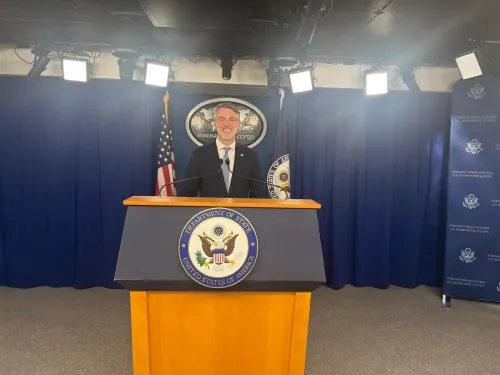Malaysia Issues Licenses to Social Media and Messaging App Providers Under New Regulations

Kuala Lumpur, Jan 1 (NationPress) Providers of social media platforms and messaging applications in Malaysia have commenced the licensing process following the enforcement of a new law that necessitates regulation of these services, according to a statement from the country's multimedia regulator.
Tencent, the Chinese internet conglomerate known for its widely-used messaging application WeChat, along with ByteDance, the Chinese technology company behind TikTok, have successfully secured their licenses, as reported by the Malaysian Communications and Multimedia Commission.
The commission further noted that Telegram is nearing the conclusion of its licensing process, while Meta, the parent company of Facebook, WhatsApp, and Instagram, has initiated its licensing acquisition for operating these platforms within the nation.
However, the applications from both X (formerly known as Twitter) and Google, which manages YouTube, have not yet been submitted, as reported by the Xinhua news agency.
The amendments to Malaysia's communication and multimedia laws were passed by the lower house of parliament on December 9, 2024, requiring service providers operating within the country to obtain licenses. This move was aimed at bolstering online safety, enhancing user protection—especially for children and vulnerable individuals—and improving regulatory oversight.
The newly released guidelines focus on information and network security for the Communications and Multimedia Industry (INSG) and seek to fortify the information and network security as well as the resilience of the communications and multimedia sector in Malaysia.
The Malaysian Communications and Multimedia Commission (MCMC) has urged the industry to adopt best practices as part of proactive measures aimed at enhancing cybersecurity across the communications and multimedia sector.
"The initiative is designed to improve the capabilities and readiness of service providers in managing cyber risks, reducing data breaches, minimizing service disruptions through enhanced network infrastructure, and safeguarding consumers against online threats," the commission stated.
Furthermore, the guidelines represent a crucial step in protecting Malaysia's digital systems, ensuring secure and resilient network infrastructures, while showcasing the commission's commitment to tackling the complexities of an evolving cyber landscape and fostering trust and safety within the nation's digital realm.









